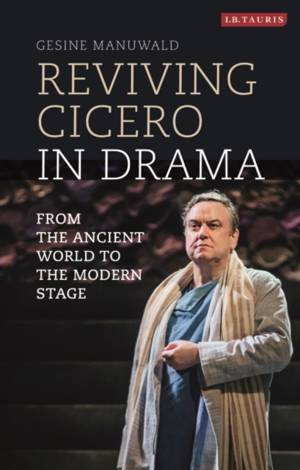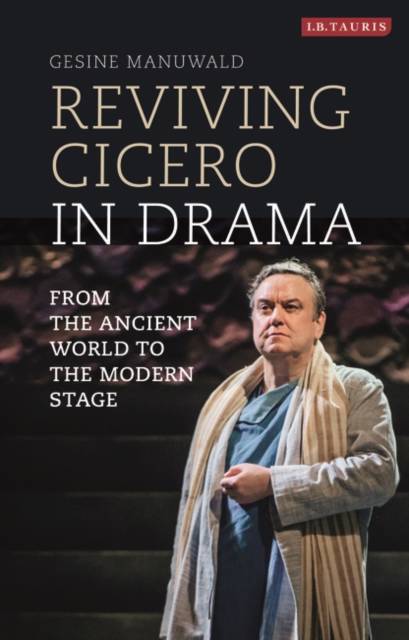
- Afhalen na 1 uur in een winkel met voorraad
- Gratis thuislevering in België vanaf € 30
- Ruim aanbod met 7 miljoen producten
- Afhalen na 1 uur in een winkel met voorraad
- Gratis thuislevering in België vanaf € 30
- Ruim aanbod met 7 miljoen producten
Zoeken
€ 296,95
+ 593 punten
Uitvoering
Omschrijving
The influence of Cicero is everywhere to be found. His rhetorical and philosophical writings have made an inescapable impact on the history of western culture, impressing figures such as Augustine, Jerome, Petrarch, Erasmus, Martin Luther, John Locke, David Hume, John Adams and Thomas Jefferson. Despite his wide appeal, until now no study has yet offered a comprehensive overview of 'Cicero' as a character in stage plays in the early modern and modern periods.
The first book of its kind to discuss Cicero's reception on stage, it includes works by Ben Jonson (1611, Catiline His Conspiracy), Voltaire (1752, Rome sauvée, ou Catilina), Richard Cumberland (1761, The Banishment of Cicero), Henry Bliss (1847, Cicero, A drama) and, most recently, Mike Poulton (Imperium, adapted from the novels of Robert Harris in 2017). Through a chapter-by-chapter account of each play in turn, every oeuvre is placed in its historical and cultural context; the plots are discussed in relation to the ancient sources. These analyses demonstrate how the presentation and assessment of the figure of Cicero develop over time and how this character is exploited for varying political statements. The wealth of material in this book is vital reading for scholars of Classics, drama and literary studies as well as historians of ideas and of the early modern age.Specificaties
Betrokkenen
- Auteur(s):
- Uitgeverij:
Inhoud
- Aantal bladzijden:
- 320
- Taal:
- Engels
- Reeks:
- Reeksnummer:
- nr. 36
Eigenschappen
- Productcode (EAN):
- 9781788312967
- Verschijningsdatum:
- 13/12/2018
- Uitvoering:
- Hardcover
- Formaat:
- Genaaid
- Afmetingen:
- 142 mm x 218 mm
- Gewicht:
- 521 g

Alleen bij Standaard Boekhandel
+ 593 punten op je klantenkaart van Standaard Boekhandel
Beoordelingen
We publiceren alleen reviews die voldoen aan de voorwaarden voor reviews. Bekijk onze voorwaarden voor reviews.







